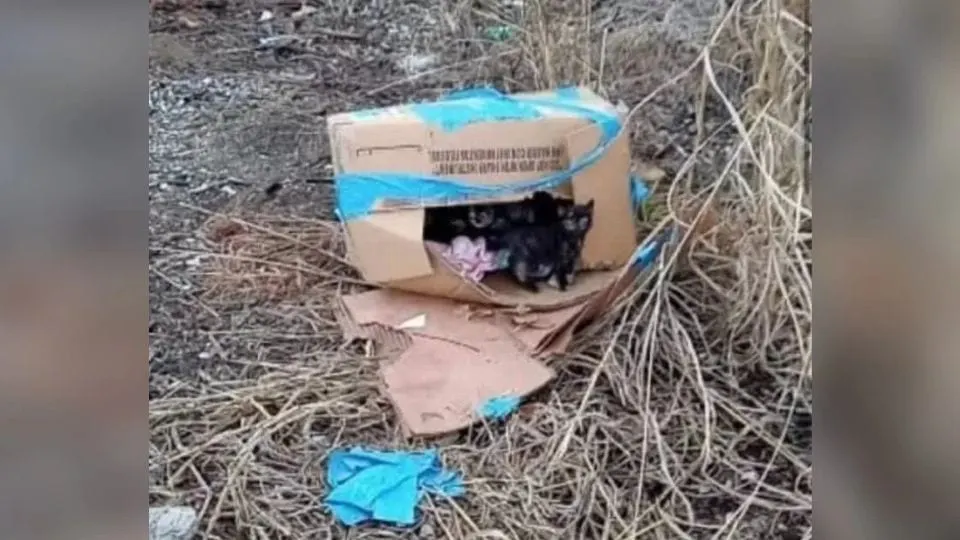
One chilly December morning in Covington, Kentucky, a young man was walking to the Life Learning Center when something caught his eye.
Sitting in the middle of the train tracks was a cardboard box, sealed tightly with layers of tape.
For a moment, he wondered if it was just trash — but a faint sound from inside made his heart drop.
A Box on the Tracks
He ran toward the box, peeled away the tape, and opened the lid.
Inside, five tiny kittens stared back at him, trembling and packed together like they were clinging to each other for warmth.
They were only about five or six weeks old — far too young to be left alone, much less on train tracks where danger passed every few minutes.
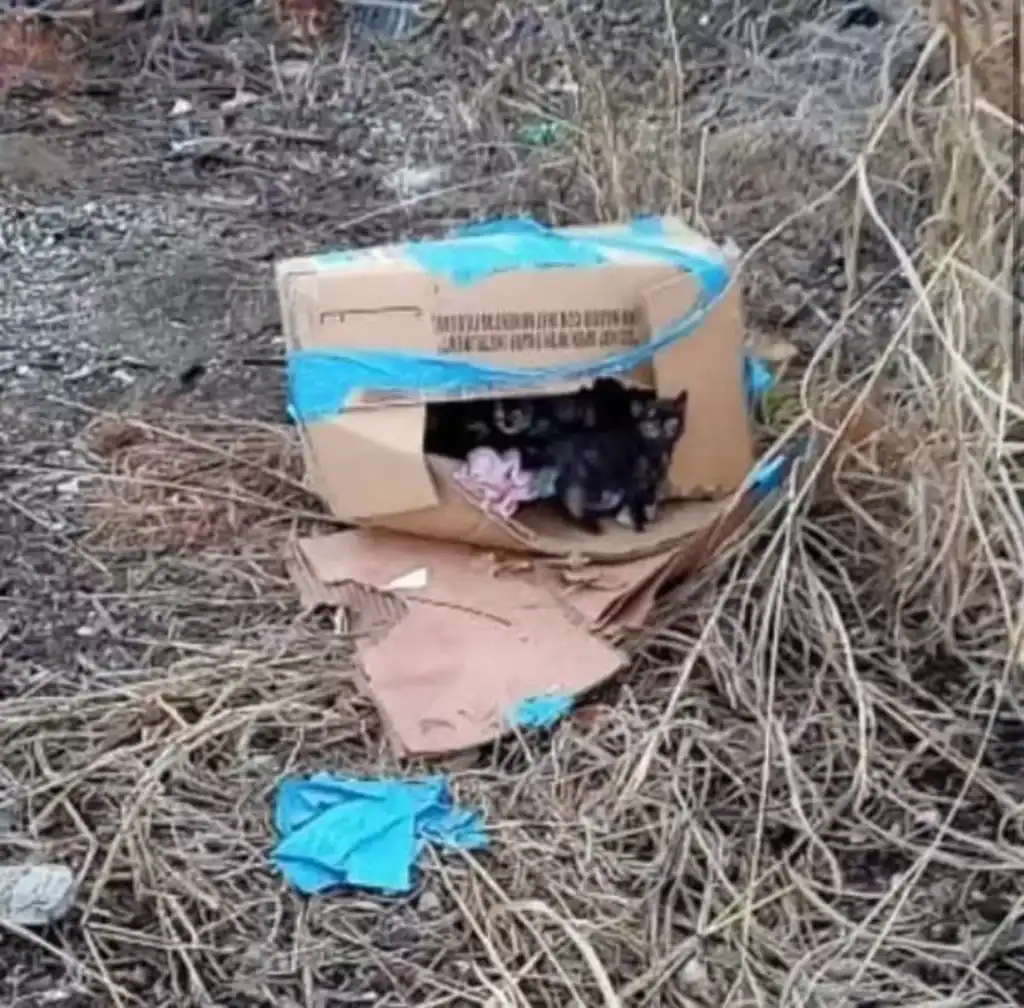
Unsure what to do, the man rushed to get help. A staff member at the Life Learning Center soon posted about the kittens on Facebook, hoping a rescue group might see it in time.
The message reached Stray Haven Pet Rescue, where volunteer coordinator Shelly Conner immediately offered to take them in.
A Strange Struggle to Stand
The kittens were moved to a loving foster home that same day, finally safe from the cold. Their foster mom set them up in her bathroom with soft blankets and warm milk.
At first, everything seemed fine — until she noticed that most of the kittens couldn’t quite balance when they tried to walk.
“They were wobbling so much it didn’t look normal,” she explained in a message to Stray Haven.
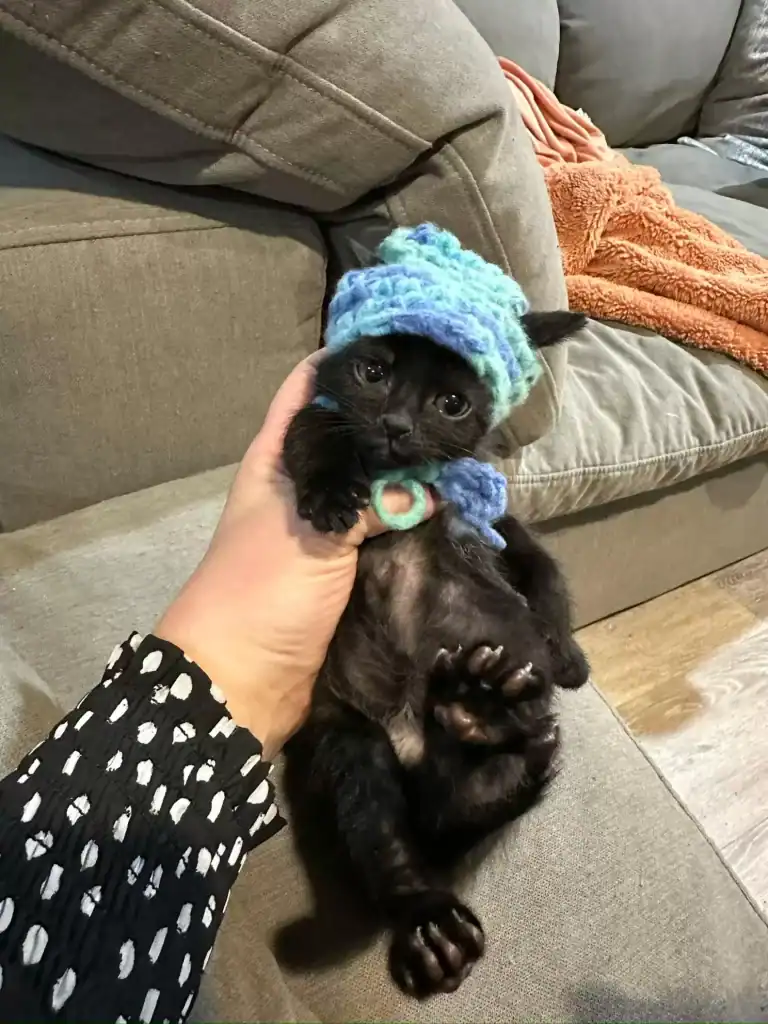
Concerned, she filmed short clips and sent them to Shelly, who recognized the signs instantly. Shelly had seen this before — the unsteady heads, the shaking steps. It was cerebellar hypoplasia, more commonly known as wobbly cat syndrome.
This neurological condition develops before birth, usually when a pregnant mother cat catches panleukopenia, or “kitty parvo.”
The illness interferes with the kittens’ developing cerebellum — the part of the brain that controls balance and coordination.
There’s no cure, but cats with CH can still live long, happy lives with a little extra care.
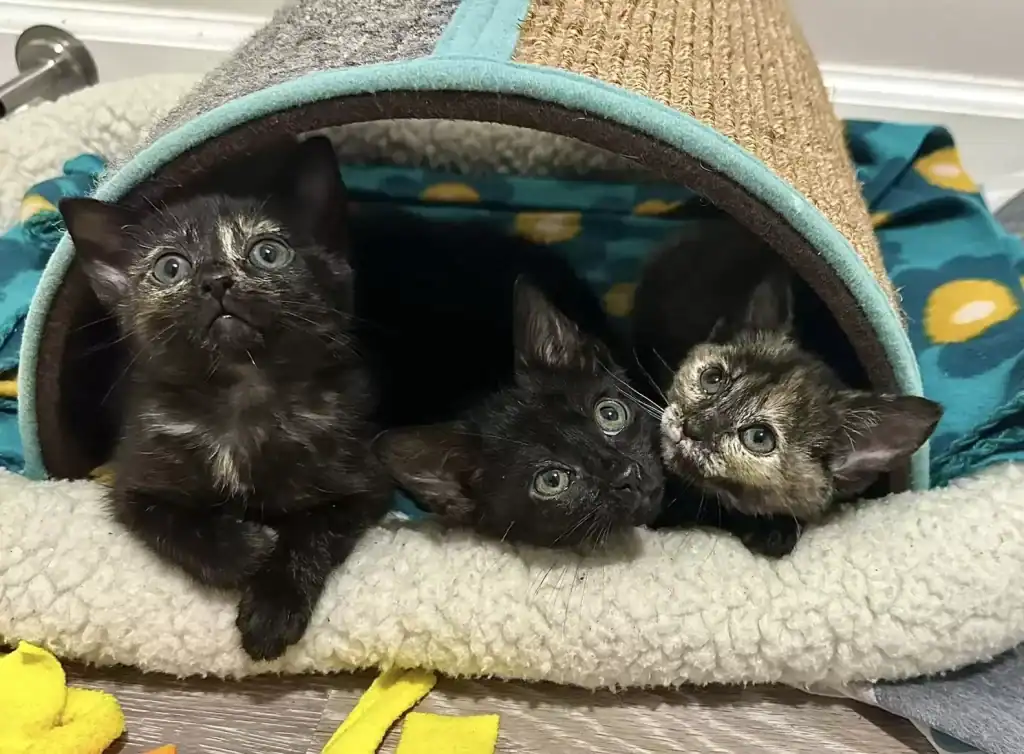
Four of the kittens were diagnosed with mild to moderate CH, while one — later named Chunky Monkey — seemed unaffected.
Shelly decided to foster the entire litter herself, drawing on her experience caring for other special-needs cats.
She named the wobbly siblings Rocky Road, Cherry Garcia, Pistachio, and Sherbet — a sweet reminder of how resilient they truly were.
Learning to Stand Tall
At first, things were difficult. The kittens couldn’t stay on their paws for more than a few seconds, and feeding time often turned into a tumble of tiny bodies. B
ut Shelly refused to give up on them. She kept them clean, helped them eat, and celebrated every tiny sign of progress.
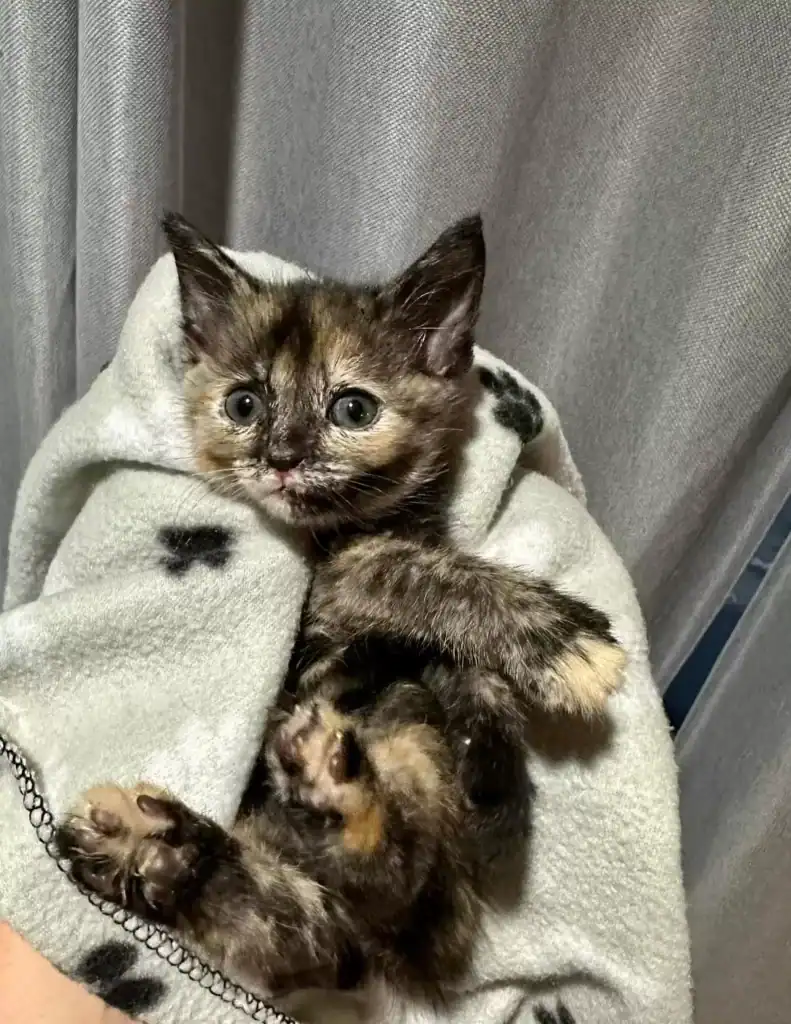
“The first few days, they were so weak that none of them could stand steadily,” she shared. “We worried the condition might be severe.” But day by day, they grew stronger.
Within three weeks, they could balance long enough to drink on their own, and soon after, they started using the litter box without help. Their wobbles didn’t go away, but they learned how to live with them — often playfully toppling over and getting right back up again.
Now, the five kittens spend their days chasing toys, climbing over one another, and curling up in soft piles for naps.
They don’t realize they’re different — and in many ways, they aren’t. Their lives are full of love, curiosity, and second chances.
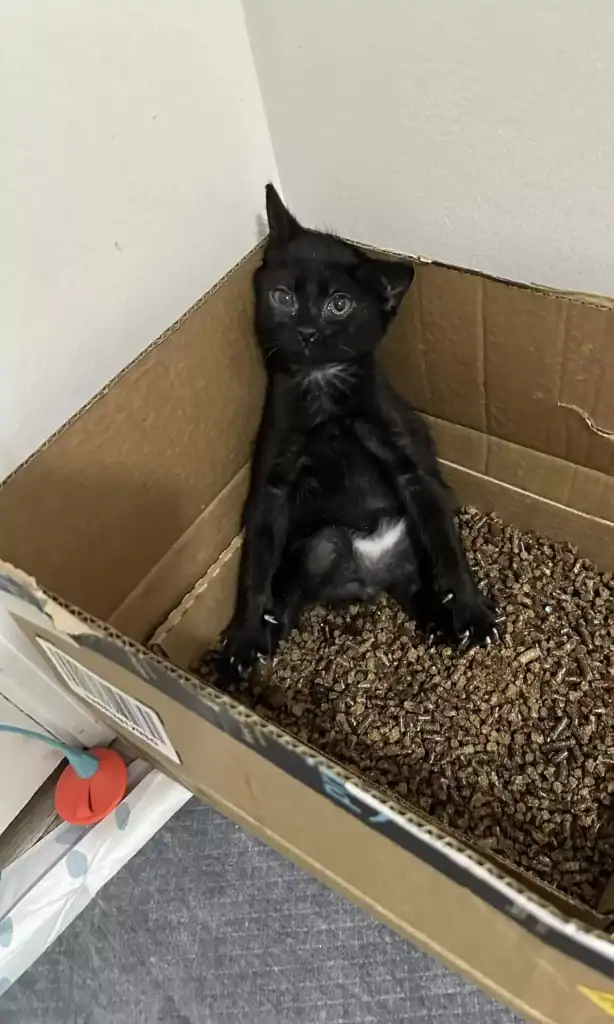
Stray Haven hopes to place the kittens with families familiar with CH, just to ensure they continue receiving the understanding care they need.
But otherwise, these little survivors will grow up like any other cats — full of spirit and joy.
What began as a heartbreaking discovery on the train tracks has turned into a story of survival. Against all odds, five kittens who were once abandoned now have a bright future ahead — one filled with safety, warmth, and love.
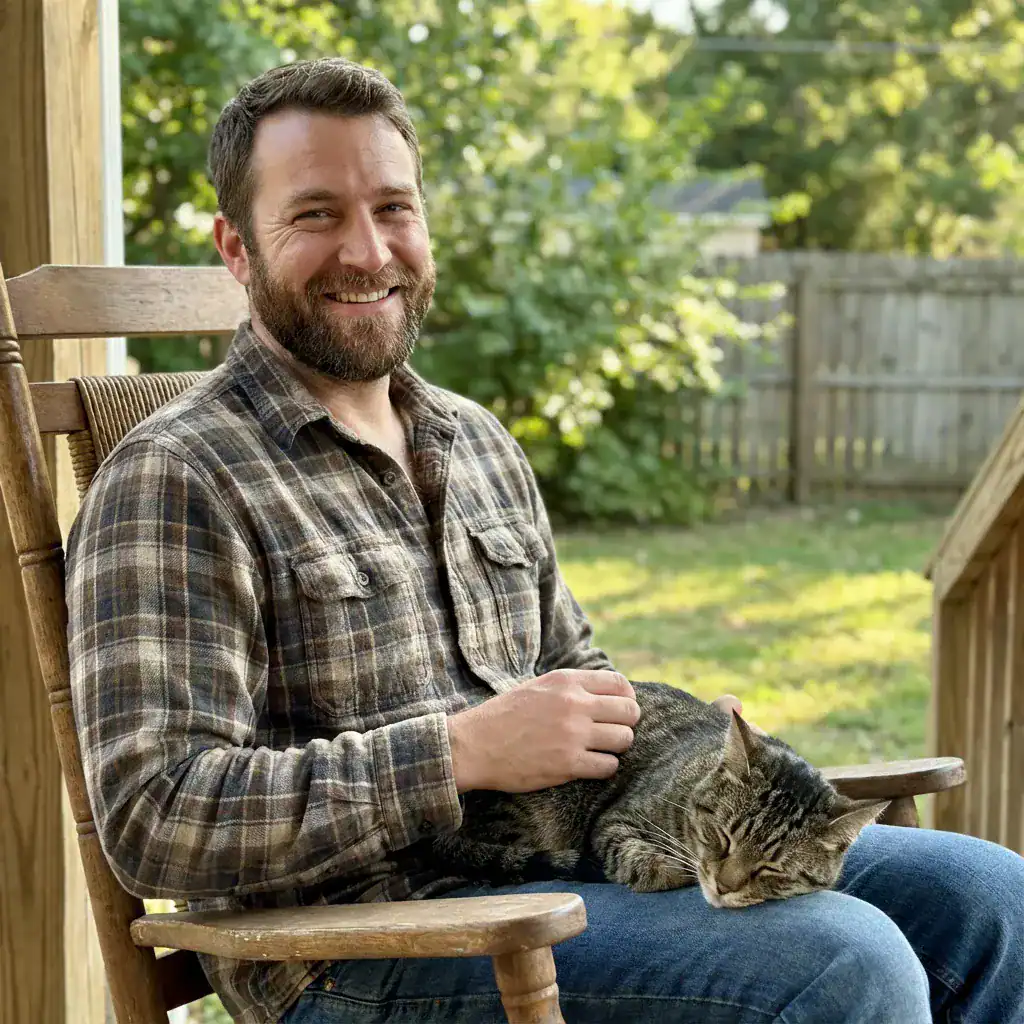
I’m Chris, a lifelong cat lover and rescue advocate based in Austin, Texas. What started with one scruffy shelter cat ten years ago turned into a mission — sharing the stories of cats who got their second chance. I believe every rescue cat has a tale worth telling, and I’m here to tell them. When I’m not writing, I’m probably being ignored by my own three rescues
